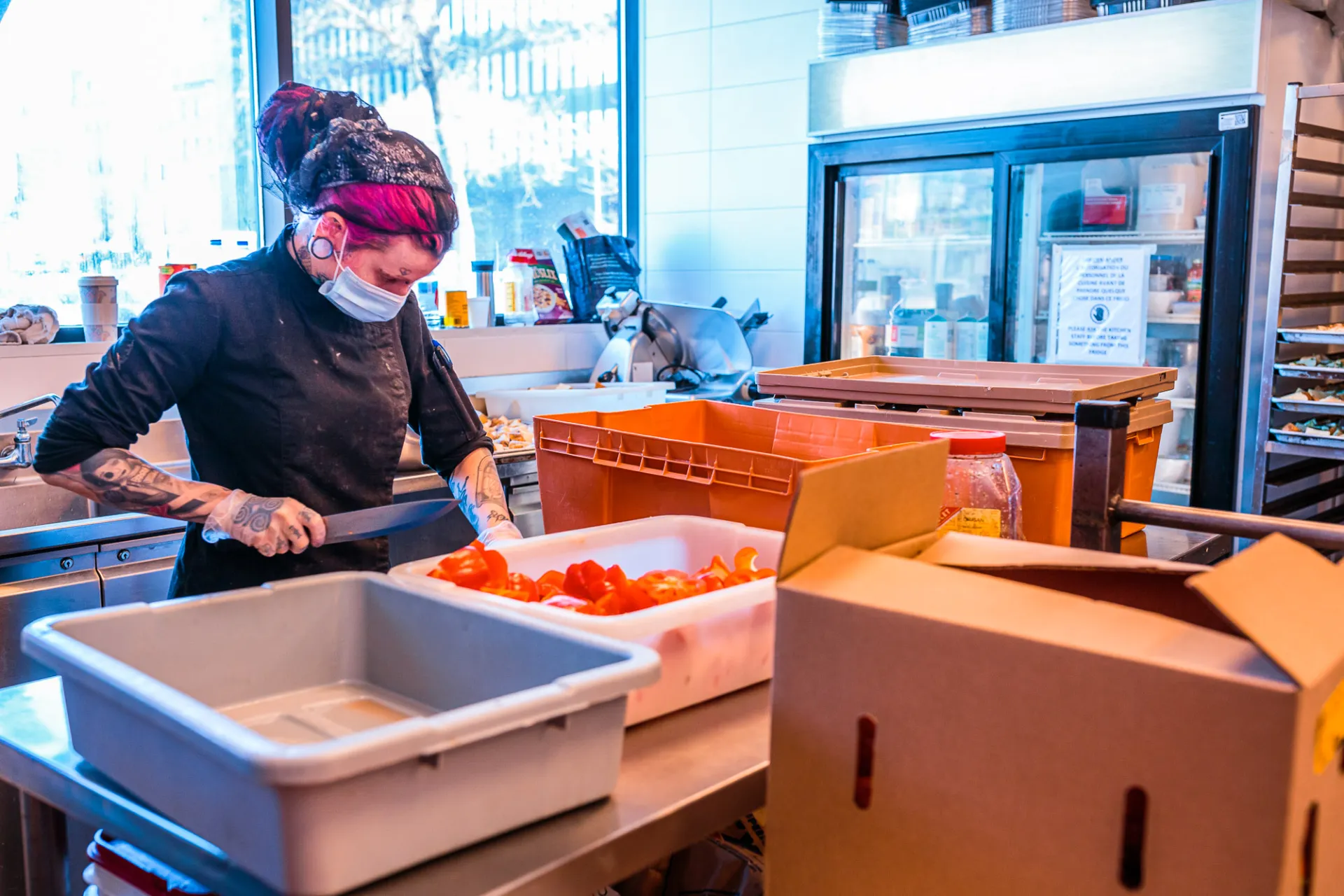
This Nutrition Month, reduce food waste through better regulation

Take, for example, the Regulation respecting fresh fruits and vegetables, which sets standards for appearance. It requires that the leaves around a head of cauliflower must be “fresh and free from blemishes.”
So, the industry and grocers are forced to discard perfectly edible vegetables if the leaves don’t meet the standard.
RECLAIM “UGLY” PRODUCE
There’s no reason not to eat fruits and vegetables that deviate from aesthetic standards.
Beautiful or ugly, if they are safe to eat, they contain the same nutrients.
So, why reject them even before they reach the store shelves?
As nutritionists, we believe that grading fruits and vegetables by size and appearance shouldn’t be allowed.
Also, the industry is still allowed to put a “best before” date on food packaging, based on how long the food stays fresh, even though it can last much longer.
It’s a way to force grocery stores to turn over their stock and thereby increase the producers’ sales — and it’s wasteful because the food must be taken off the shelf on the date shown on the label.
It is imperative that the government review these rules and impose penalties to limit the rampant waste at every link in the food chain, even before the food reaches the consumer.
REDISTRIBUTE THE SURPLUS
Food that is still safe to eat should not be thrown away or bleached to make it inedible.
The players in the food supply chain could redistribute these products.
Why throw away food that took so much time and resources to produce, when there are alternatives?
Retailers could sell surplus food at a discount, donate it to community organizations that serve vulnerable populations, such as the Old Brewery Mission and Accueil Bonneau, or sell it to processors that could use the product quickly and cheaply.
Food waste is a problem we can’t solve only as individuals.
This is why we need regulations that apply to all components of the food supply system.
We can all be part of the solution: let’s call on the government to pass legislation that prohibits the disposal of food that is fit for consumption, from the first stages of production to the grocery store shelf.
IT’S BEEN DONE
The approach we propose is realistic: one need only look at other countries that have introduced measures of this type.
For example, the 2016 “Garot law” in France prohibits throwing away food that is fit for consumption.
Norway, Denmark and South Korea have reduced food waste by about 300 tons per day through improved food recovery systems.
This Nutrition Month 2022, it is time to push for action on this front in Quebec.
Let’s take our cue from what has been done elsewhere to make improvements here, protect the environment and set an example for the rest of North America.
- Catherine Vachon, P.Dt., Head of Food Services, Old Brewery Mission
- Manal Al Brahim, Cynthia Barakat, Gabrielle Lehoux, Laurie Martin, nutrition interns, Old Brewery Mission
- Moéra Castonguay-Lafleur, P.Dt., Food Safety Manager, Accueil Bonneau
- Nivuseni Thesingarajah, nutrition intern, Accueil Bonneau
Dernières nouvelles
-
 The Old Brewery Mission and TELUS Health for Good launch second mobile
The Old Brewery Mission and TELUS Health for Good launch second mobile -
 Homelessness in the downtown core: We must house, care and innovate
Homelessness in the downtown core: We must house, care and innovate -
 Meet Jean-François Dagenais, Vice President of Finance, IT and Facilities
Meet Jean-François Dagenais, Vice President of Finance, IT and Facilities -
 Old Brewery Mission unveils new employer brand
Old Brewery Mission unveils new employer brand -
 Another resounding success for the Ken Reed Golf Tournament: $334,091 raised for the Old Brewery Mission!
Another resounding success for the Ken Reed Golf Tournament: $334,091 raised for the Old Brewery Mission! - See all news